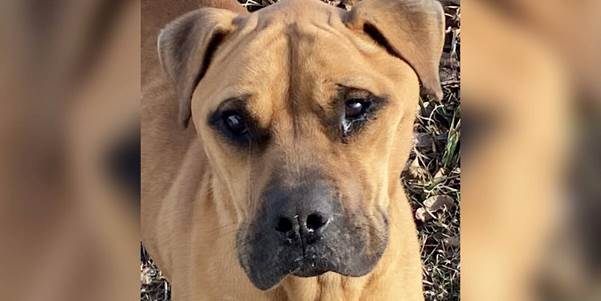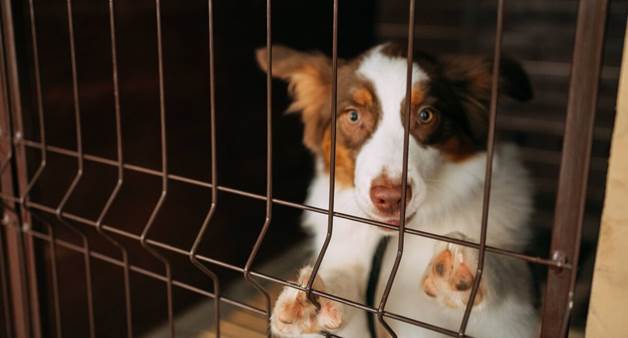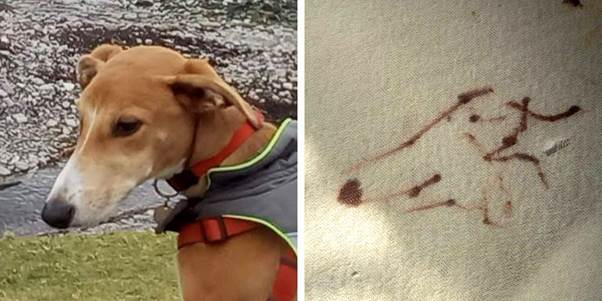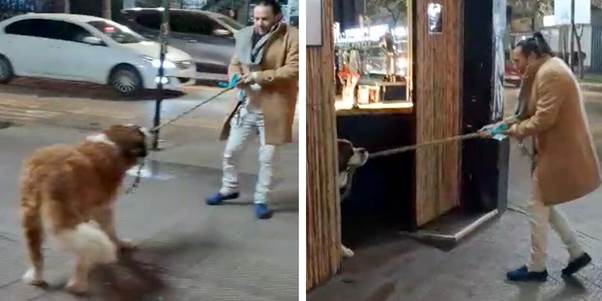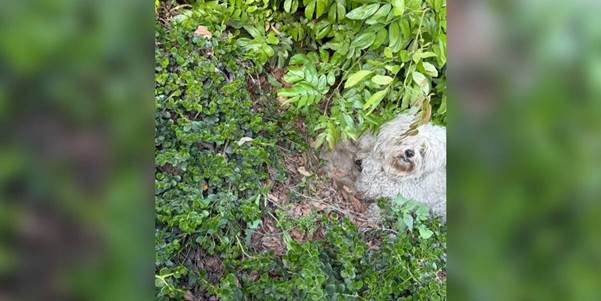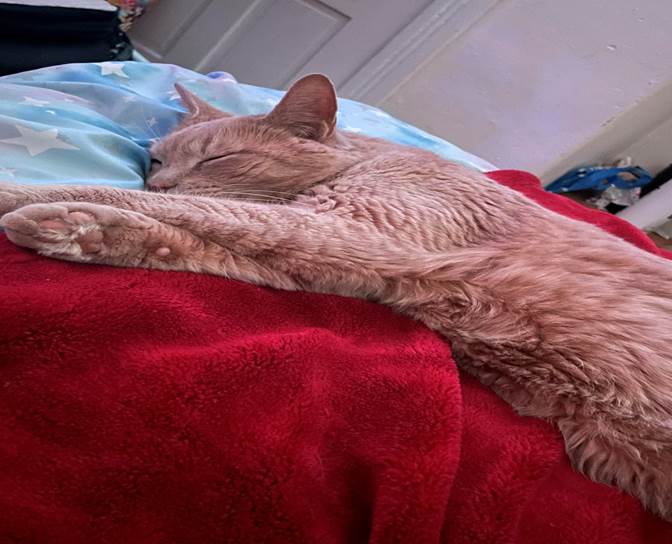Riven’s Eight-Year Vigil: The Split and the Key
Riven was not a name given to him by his original human; it was a name earned by the jagged, internal split that occurred one Tuesday afternoon. He was a magnificent German Shepherd mix, a tapestry of tan and black fur, with eyes the color of dark honey—eyes that held too much intelligence and far too much loyalty for his own good. The house, once a warm, boisterous place, had been sealed like a tomb. Riven remembered the green pickup truck, the boxes, the hurried movements of his human, David, who knelt before the front door, whispering promises of return. “Be a good boy, Riven. Guard the house. I’ll be back for you.” But David never returned. The memory of the promise, however, had an anchor: the spare brass key. As David had fumbled with the deadbolt, the key had slipped from his grasp, landing with a faint metallic chime on the cracked concrete step, half-hidden beneath a tangle of Bermuda grass. David, distracted and distraught, hadn’t noticed. Riven had. In the simple, unwavering logic of a dog, the key became the Command. He could not leave because the house was locked, and his job was to wait until that key—or another like it—was turned. The key was the physical embodiment of the promise. Eight years passed in a monotonous cycle of sun, snow, and rain. The paint on the porch peeled back like sunburnt skin. The roof developed a dark green patina of algae. The overgrown rose bushes, which Riven was once scolded for digging, grew into thorny, impassable barricades. The only thing that did not decay was Riven’s resolve. His territory shrunk to the small, dusty patch beneath the warped oak tree near the gate. This provided the barest shelter from the elements. He ate sparingly, relying on the quiet charity of two elderly neighbors—Mrs. Henderson and Mr. Dale—who left dry kibble and water near the rusted mailbox once a day. They respected his vigil; they knew better than to approach the large, silent dog who looked at them without accusation, only profound focus. They called him “The Sentinel.” Riven was lean, scarred, and perpetually dusted with the fine grit of the unkempt yard, but the intensity in his amber eyes was undimmed. He was a living statue carved from commitment. He rarely slept deeply. Every sound was a truck engine. Every shadow was David’s silhouette. He was constantly listening for the tell-tale sound of the key rattling the lock, a sound that would mean the split in his world was finally healed. His life was the definition of his name: Riven, torn apart, patiently holding the fragments together by sheer will. The arrival of Calla was not a dramatic event, but a slow, geological change. Calla worked for a local animal welfare group, and Riven’s plight was a frustrating, heartbreaking file on her desk. The neighbors had tried. Animal Control had tried. But Riven was clever and agile, disappearing into the undergrowth the moment he sensed confinement or aggression. His loyalty had made him wild. Calla understood that Riven wasn’t aggressive; he was occupied. His attention was consumed by a duty that overshadowed every biological need. She decided against tactics of force or surprise. She chose patience. Her first visit, on a cool Tuesday morning—the eighth anniversary of David’s departure, though she didn’t know it—was simple. She parked her modest sedan a block away and walked toward the house. She wore soft colors, moved slowly, and carried nothing but a book and a thermos. Riven watched her from beneath the oak, his body tense but his eyes merely observing. Calla stopped at the curb, a good fifty feet from him, and sat on the low retaining wall. She opened her book and began to read aloud, her voice low and melodic, reading passages from an obscure collection of nature poems. She didn’t look at Riven. She didn’t call his name. She simply existed in his space, a calm, predictable part of the environment, like the wind or the slow drift of clouds. For two weeks, she repeated this routine. Forty-five minutes every morning. The distance remained the same. On the third week, she moved ten feet closer. Riven stiffened, but held his place. On the fourth week, she brought a clean, faded blue blanket. She placed it halfway between her sitting spot and the gate, then retreated. Riven didn’t approach it. He didn’t need comfort; he needed closure. Calla shifted her strategy. She began to speak directly to him, still in that low, musical register. “You’re a handsome boy, Riven. I see you. I see how hard you’ve worked.” She spoke of commitment, not abandonment, validating the only thing he had left. The breakthrough came on a cold, drizzly evening when Calla had almost given up for the day. She had left a bowl of warm broth near the blanket, along with a small, smooth river stone she’d picked up. As she turned to walk away, she spoke softly, her voice barely audible over the rain. “You’ve carried the key for long enough, Riven. It’s time for someone else to hold the weight.” That phrase, carried the key, pierced the eight-year-old fog. Riven rose. His joints cracked and protested. He looked past Calla, past the gate, all the way to the faded porch steps where the brass key lay half-buried. He took a single, agonizing step toward the porch, then paused, his massive head drooping. The reality of the empty house, the years of fruitless waiting, finally overwhelmed the command. He turned his head slowly, tracking Calla. For the first time, his gaze was not fixed on duty, but on her—on the open, gentle compassion in her face. Then, the inevitable happened. Not a bark of anger, or a whimper of fear, but a visible, profound release of sorrow. A dark, glistening track of moisture ran from his amber eye, tracing a path down his dust-caked face. It was the only soundless cry of grief Calla
Riven’s Eight-Year Vigil: The Split and the Key Read More »
